
Jôji Ohara
出生 : 1902-09-27, Tokyo, Japan
死亡 : 1990-06-24
略歴
1902年(明治38年)9月27日、東京府東京市(現在の東京都)に生まれる[2]。
旧制・青山学院中等部(現在の青山学院高等部)を卒業し、満19歳となる1924年(大正13年)、松竹蒲田撮影所に入社する。1927年(昭和2年)、撮影技師に昇進、斎藤寅次郎監督の『魔道』の撮影技師を先輩の野村昊と共同で務めて、技師としてデビューする。
「明るい軟調のトーン」のコントラスト設定をする技師として知られ[3]、水谷文次郎、三浦光雄ら当時の蒲田の技師たちとともに、モダンな「蒲田調」の画調を生み出したとされる。1930年(昭和5年)から1931年(昭和6年)までの一時期、監督の豊田四郎と行動をともにし、帝国キネマ演芸に移籍しているが、やがて蒲田に戻っている。蒲田時代の代表作は、『恋の花咲く 伊豆の踊子』(1933年)、『人生のお荷物』(1935年)等、監督の五所平之助と組んだ作品である。1936年(昭和11年)には、撮影所の大船移転により松竹大船撮影所に異動した。
1937年(昭和12年)、蒲田撮影所出身の重宗務が2年前に設立した東京発声映画製作所が撮影所(のちの東宝映画第三撮影所および新東宝第二撮影所、現在のオークラランド)を新設、小原は同社に移籍する。入社第1作は、先に入社していたやはり蒲田出身の小倉金弥と共同で撮影技師を務めた、重宗務、豊田四郎、阿部豊共同監督による『十字砲火』で、同年12月31日、東宝映画の配給により公開された。1941年(昭和16年)、同社が東宝映画と合併し、小原は東宝映画に移籍となる。
第二次世界大戦後の1947年(昭和22年)、新東宝映画(のちの新東宝)の設立に参加、同年、阿部豊監督の『愛よ星と共に』を撮る。1950年(昭和25年)には、同社で小津安二郎監督の『宗方姉妹』、つづいて溝口健二監督の『雪夫人絵図』のカメラを回した。
1951年(昭和26年)11月17日、子息の礼が生まれる[7]。のちに礼も、小原同様に青山学院に進学する。
1954年(昭和29年)には、日活で五所平之助監督作『愛と死の谷間』、および新東宝で同監督の『鶏はふたゝび鳴く』両作の撮影技師を務め、同年の第9回毎日映画コンクールで撮影賞を受賞した。
1958年(昭和33年)、大映東京撮影所に移籍、1968年(昭和43年)、島耕二監督の『怪談おとし穴』を最後に引退した。

Tachibana
Jun Aisaka seduces one woman after another. His victims were flirtatious married woman Noriko, student Keiko, widow Mitsuko and dancer Rumi. As a result, he ends up in prison, but after escaping with another prisoner, he continues his criminal adventures with a partner. It is clear that this will not end well. Moreover, a couple of detectives are already on the trail of the criminals.

Director of Photography
Horror film directed by Koji Shima.

Director of Photography
Adaptation of Seicho Matsumoto's novel of the same name.

Camera Department Manager
A comedy directed by Koji Shima about a men's game. Reckless and exciting, definitely worth watching! Miyoshi Oki was born in Hokkaido and grew up in a dirty carriage that his father owned. His dream was to have a horse with a good coat that costs 10 million yen and he set a goal for it. At the invitation of Otaki-gumi executive Iwasa, he joined Otaki-gumi while the leader Sozaburo was sick. Miyoshi's method is not to deal with the yakuza's morale and slashing, but to handle things mentally....

Director of Photography

Cinematography
Seventeen years after the atomic bomb was dropped on Hiroshima, a newspaper reporter looks for the bomb's effects, but everyone seems to have forgotten. He meets a woman who was there when it happened but when they fall in love she isn't able to move on.

Director of Photography
Seventeen years after the atomic bomb was dropped on Hiroshima, a newspaper reporter looks for the bomb's effects, but everyone seems to have forgotten. He meets a woman who was there when it happened but when they fall in love she isn't able to move on.

Director of Photography
Shikiko Oba is nimble with her fingers and teaches dressmaking and designing. Among her pupils are Rinko, Katsumi and Tomie. Ginshiro, who is as shrewd as the shrewdest of the older generation of dyed-in-the-wool Osaka businessmen, steps into picture and Shikiko soon feels that he is indispensable to her. But the advent of a man in their midst breaks up the harmony that has existed among the four women, as gradually he forces himself on them with promises of love.

Cinematography
Contemporary musical drama film by Yasuzo Masumura.
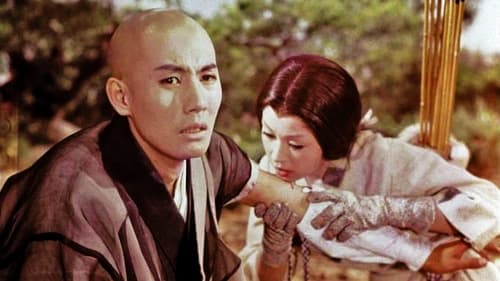
Cinematography
Princess Kiyo accidentally injures a local priest, Anchin, while on a hunt. She apologizes, but feels irritated by Anchin’s indifference to her in spite of her beauty. One night, while Anchin is recuperating in a hot spring, he is approached by Kiyo. She tells him that she is in love with him.

Japanese crime film

Director of Photography
Japanese drama
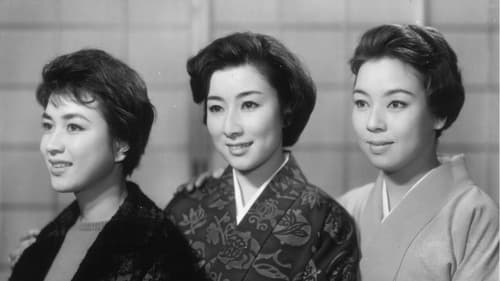
Director of Photography
谷崎潤一郎の小説「細雪」の島耕二監督による2度目の映画化。大阪の旧家の4姉妹の日常を描いた日本映画の佳作。大阪の船場の旧家だった藤岡家の4姉妹、鶴子・幸子・雪子・妙子。三女、雪子はその人見知りが災いしてなかなか縁談がまとまらなかった。そんな中新たな縁組みの話が舞い込んできて・・・。

Director of Photography

Cinematography
The fourth entry in the Company President Series

Director of Photography
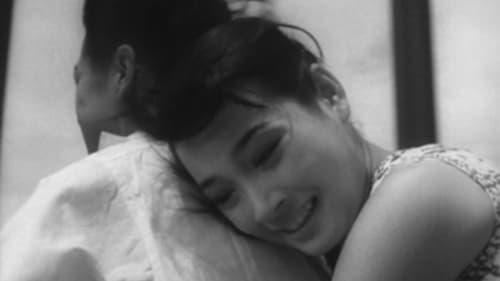
Director of Photography
Kinichi and Akiko meet when they visit their fathers in prison. After successfully gambling on a bicycle race, they spend an enjoyable day together at the beach.
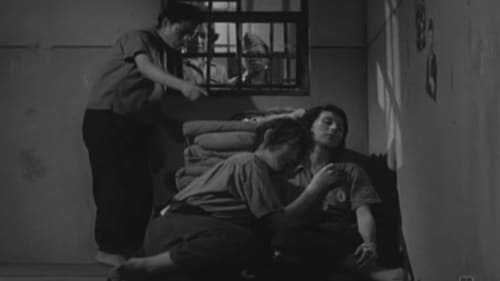
Director of Photography
The woman prison has a cast all with a story of their own and with no dull or routine day. There is an employee who is divorced after her husband had an affair. She loves the jailed criminals and almost sees them as family. One day at a workshop someone faints while working hard to make money because she has a poor boyfriend. Another inmate is knocked up Another is a mother and has her child with her.

Director of Photography
A little girl who falls into a lake and is saved by a god who then takes her up to the clouds and shows her what the world was like before she was born and what the world would be like if she where never born. While in the clouds she meets her grandparents and a few other people she loved who have passed on.

Director of Photography
A boy falls in love with a girl. Neither of them know that she's to be sold to a brothel.

Director of Photography
Three young women make a suicide pact, but they grow to have a better understanding of themselves.
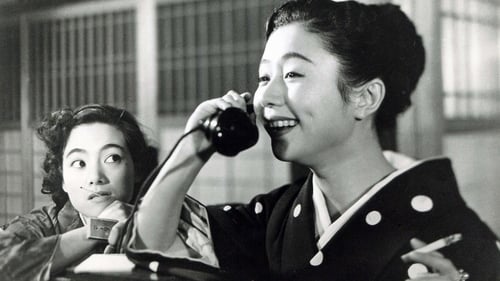
Director of Photography
An Inn at Osaka, rarely seen outside Japan, follows the story of an insurance company executive from Tokyo, Mr. Mito, who is demoted to the Osaka office. He takes a room at a small inn and tries to rebuild his life. Notable for its exquisite framing and cinematography, An Inn at Osaka allows its complicated plotlines to disappear behind the minutiae of penury and humiliation that Mito and others suffer during the post-war economic and social reconstruction.

Director of Photography

Director of Photography
Buntaro, the president of a food trading company got tired of the day-to-day routine of life. The new secretary, Nobuko, suggested her "shacho-san" (the president) run away from the job. Nobuko took Buntaro to her home and introduced him to her own family as friend, "Sachio-san"...

Director of Photography
Bittersweet shomin-geki drama by Keigo Kimura
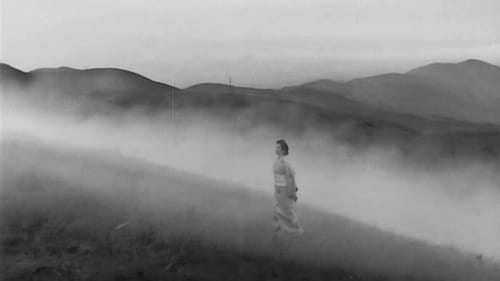
Director of Photography
Hamako has just started working for her personal hero, Madame Yuki. Her romanticized view of the Madame is broken immediately, though, as she is introduced with a ever-growing list of the Madame’s personal problems.
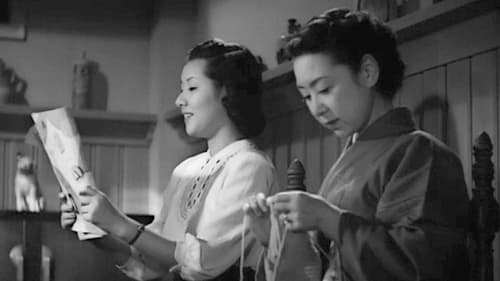
Director of Photography
Setsuko is unhappily to Mimura, an engineer with no job and a bad drinking habit. She had always been in love with Hiroshi but both of them failed to propose when Hiroshi left for France a few years ago. Now he is back and Mariko (Setsuko's sister) tries to reunite them. She too is secretly in love with Hiroshi.

Director of Photography

Director of Photography
A love triangle among a girl, her poor boyfriend, and a rich company president.
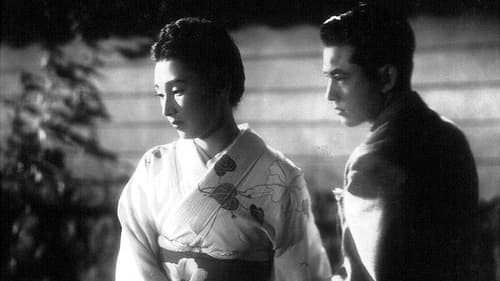
Cinematography
A platonic love story, the protagonist continues to love the woman he fell in love with when he was a boy for the rest of his life.
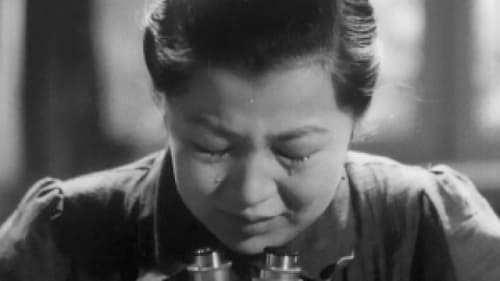
Cinematography
The stories of several young women who work in a 'precision optical instruments' factory during the second World War. Despite illness, injury, and tremendous personal hardship, the women persevere in their tasks, devoted to their work and their country's cause.

Cinematography
Venice Film Festival 1939

Director of Photography
A Japanese screwball comedy about the battle between the sexes: two timid men, egged on by their wives, end up in a bitter duel over an expensive lace handkerchief.

Director of Photography
The eldest daughter of a noble family is in love with an aviator while being courted by a fellow aristocrat she thinks is a dullard. This part is told from the perspective of Akemi.

Director of Photography
Otoku asks her brother Bunkichi to speak with her son Seiichi, a young man for whom sacrificed everything but who now seems to be headed for a wastrel life. Bunkichi admonishes the boy to study harder, but it seems his uncle's advice may already be too late.
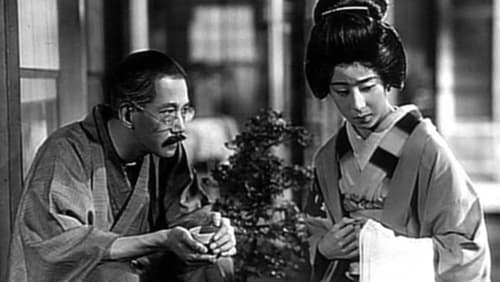
Director of Photography
Family drama. A middle-aged father has just married off his third daughter, but still has his nine year old son to raise whom he resents as he was unwanted. (British Film Institute)

Director of Photography
This pair of gentle yet witty and inventive comedies from the director of The Neighbour's Wife and Mine typify both the formal experimentation of early Japanese sound cinema and the social milieux that Shochiku tended to depict. 'Virtually plotless, and feeling more like comic sketches than fully developed stories,' writes Arthur Nolletti, Jr, 'these light comedies, or farces, take a wholly trivial matter (often a socially embarrassing situation) and use it as a springboard for a succession of gags.' Much of the films' distinction comes from the wit of Gosho's direction, the imaginative use of the new sound technology and the charm of the acting, particularly of the heroines (Kinuyo Tanaka in Bride; Hiroko Kawasaki in Groom). Yet in both films, Gosho finds room for some shrewd observation of character and environment, subtly exploring the values and assumptions of the suburban petit bourgeoisie.

Director of Photography
Heinosuke Gosho evokes in this film the family conflicts engendered by the eternal problem of a father who projects his professional desires on the life of his son. The sister Machiko is the essential link that will allow everyone to apologize to each other and achieve reconciliation

Director of Photography
"The Dancing Girl of Izu" tells of the story between a young male student who is touring the Izu Peninsula and a family of traveling dancers he meets there, including their youngest girl. The student finds the naïve girl attractive even though he eventually has to part with the family after spending memorable time together.

Director of Photography
This pair of gentle yet witty and inventive comedies from the director of The Neighbour's Wife and Mine typify both the formal experimentation of early Japanese sound cinema and the social milieux that Shochiku tended to depict. 'Virtually plotless, and feeling more like comic sketches than fully developed stories,' writes Arthur Nolletti, Jr, 'these light comedies, or farces, take a wholly trivial matter (often a socially embarrassing situation) and use it as a springboard for a succession of gags.' Much of the films' distinction comes from the wit of Gosho's direction, the imaginative use of the new sound technology and the charm of the acting, particularly of the heroines (Kinuyo Tanaka in Bride; Hiroko Kawasaki in Groom). Yet in both films, Gosho finds room for some shrewd observation of character and environment, subtly exploring the values and assumptions of the suburban petit bourgeoisie.













